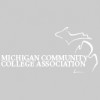
The Michigan Community College Association fosters collaboration, connection, and partnerships among the 28 Michigan public community colleges and their stakeholders. The MCCA provides strong legislative and public advocacy in Lansing and throughout Michigan, works to improve the image and credibility of community colleges, and advances numerous shared initiatives through the Michigan Center for Student Success, Michigan Colleges Online, Collaborative Programs, and the Michigan New Jobs Training Program.
Services
About
Report
The Collaborative Programs Initiative allows colleges to extend their certificate and degree opportunties within their communities at little or no cost to the institution. By partnering with other Michigan community colleges, the costs for the program are shared equally among the colleges in the program - thus providing a stable and manageable option for many high-cost and lower-enrolled programs still needed within the college community.
EEG Tech
Report
Neurodiagnostic Technologists are highly skilled, and highly sought after medical professionals. Their specific skill set and level of professionalism is what really sets them apart from other healthcare professions. Although there are several modalities that a Neurodiagnostic Technologist can specialize in, recording electroencephalograms is what they are most known for.
About the MCSS
Report
The Michigan Center for Student Success provides state-level support to Michigan's 28 community colleges by serving as a hub connecting leadership, administrators, faculty, and staff in their emerging and ongoing efforts to improve equitable student outcomes, emphasizing linkages between practice, research, and policy.
Corequisite Design Resources
Report
MCSS is committed to helping colleges increase the number and percentage of marginalized students who successfully complete gateway courses in English and mathematics through the redesign of developmental education and placement processes.
Recent research shows conclusively that, despite all of our good intentions, traditional prerequisite developmental courses hinder students' progress and raise, rather than lower, barriers to gateway, college-level, transferable course completion.
Recent research shows conclusively that, despite all of our good intentions, traditional prerequisite developmental courses hinder students' progress and raise, rather than lower, barriers to gateway, college-level, transferable course completion.
Initiatives and Resources
Report
Since 2011, the Michigan Center for Student Success has led nearly 20 initiatives with 28 community colleges across Michigan and our partners and funders. Selected initiatives and resources are available below.
In addition to the projects outlined below, the MCSS has been involved in Accelerated Learning Program, Benefits Access for College Completion, Career and College Readiness Partnership, Consortium of Michigan Veteran Educators, Credentials that Work, Credit When It's Due, Degree Qualifications Profile, Gateways to Completion, and Project Win-Win.Materials from recent events are available on our Events page.
In addition to the projects outlined below, the MCSS has been involved in Accelerated Learning Program, Benefits Access for College Completion, Career and College Readiness Partnership, Consortium of Michigan Veteran Educators, Credentials that Work, Credit When It's Due, Degree Qualifications Profile, Gateways to Completion, and Project Win-Win.Materials from recent events are available on our Events page.
Reviews

Be the first to review Michigan Community Colg Association.
Write a Review